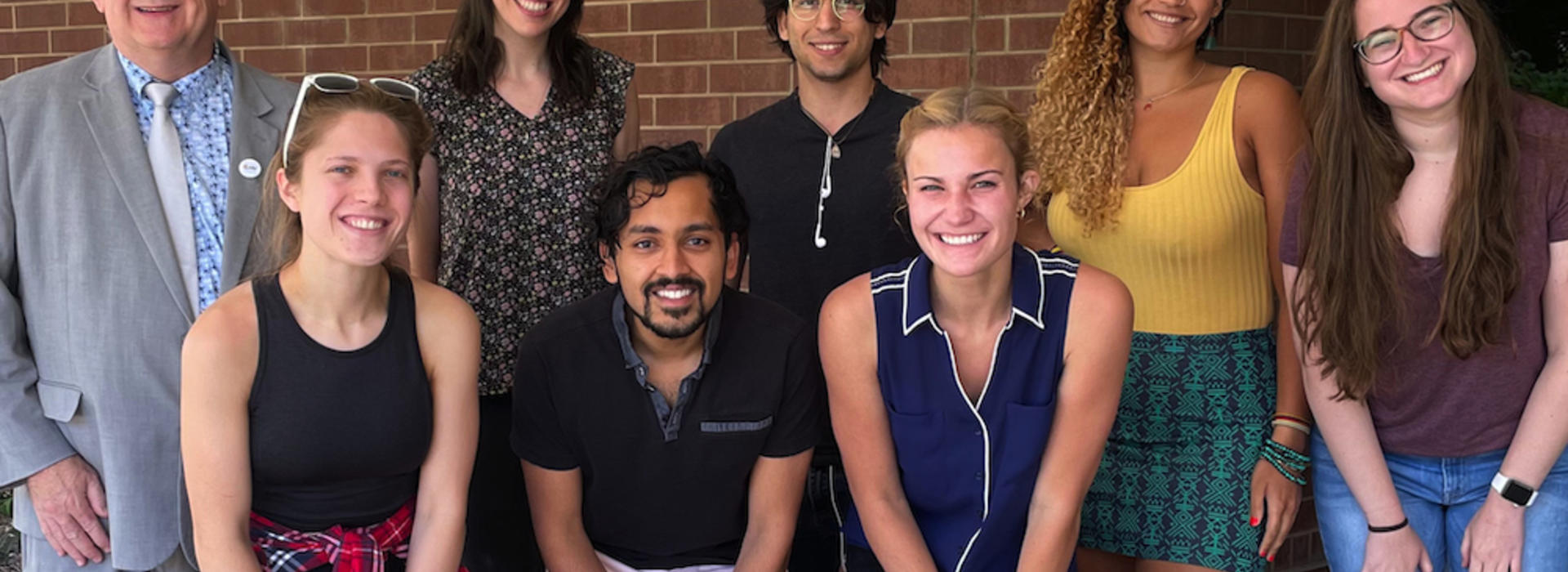
A Renaissance of Infectious Disease Interest
The important role of healthcare workers has never been more evident than during the COVID-19 pandemic, and young people are noticing. Applications to the University of Minnesota Medical School Twin Cities Campus are up 40% and the Duluth Campus up 70% from last year, a national phenomenon being called “the Fauci effect.” The pandemic has also generated a renewed interest in the study of infectious diseases.
“I’ve always been so fascinated by the world of infectious disease,” said Rachel Marks, a first-year University of Minnesota Medical School student. “It’s a really special field in the way that it integrates all the body systems and is intertwined with public health and ecology.”
Marks’ interest led her to spearhead an Infectious Disease Interest Group (IDIG) within the Medical School, which has gained traction. She also earned funding through the Infectious Diseases Society of America (IDSA) Foundation’s ID Student Interest Groups Grant Program, which provides financial support for special events, seminars and activities to inspire students to pursue careers in infectious disease.
“The grant has given us some power and flexibility to be creative when planning these events,” Marks said.
When Marks first started her training at the Medical School, she connected with Mark Schleiss, MD, a pediatric infectious disease specialist and professor in the Department of Pediatrics, to learn more about his expertise and to see if there was an infectious disease student interest group on campus. While there had been one in the past, she learned that it no longer existed.
“I just thought, there has never been more of a need for, or an interest in, infectious disease than right now,” Marks said. “Especially within my class, which started our medical training during this pandemic. So, Dr. Schleiss and I decided it was time to revamp and resurrect this group.”
Marks reached out to her fellow medical students to see if others were interested and formed the IDIG board. Modeling its structure after other student groups, IDIG was approved as an official student organization and kicked off events during the winter of 2020.
“One of the benefits of an interest group like this is to connect students and act as a bridge between them and professional societies, to provide extracurricular activities and events and to give them an opportunity to network and make connections,” Marks said.
While the events have been virtual so far, there’s a hope to return to in-person sessions in the coming months. The group’s first big event in May, an introduction to infectious disease, featured presentations by Michael Osterholm, PhD, MPH, professor in the School of Public Health’s Division of Environmental Health Sciences and director of the Center for Infectious Disease Research and Policy (CIDRAP), and Phillip Peterson, MD, a professor of medicine and director of the Medical School’s Global Medical Education and Research Program.
“They’re both experts in the field and have such wonderful perspectives and fascinating careers,” Marks said. “Their talk was centered around how epidemics emerge and the role that the government plays in them. It was an interesting discussion of the history of pandemics and how they come about but also how government, politics and policy have an impact.”
Over the next year, IDIG plans to host panels focused on different topics and functional roles, including clinicians, physician scientists and public health experts.
“Within infectious disease, there’s such diversity of career paths, and you can pursue epidemiology, research or a more clinical path,” Marks said. “We want to showcase that to students.”
Practice settings involved in the diagnosis and management of infectious diseases are also expanding as novel techniques and pharmacotherapies emerge. With changes in how infectious diseases are treated, come new professional settings, patient populations and professional activities.
“One of the great things about infectious disease practice is that although we are scientists, we see patients all over the hospital – in the clinic, emergency room, ICU and general inpatient wards,” said Dr. Schleiss, who is also the group’s advisor and IDSA faculty sponsor. “Infectious diseases span all age groups and patient populations, so it appeals to those of us who enjoy diverse clinical care settings.”
Right now, the Medical School’s IDIG has around 50 members and hopes to keep expanding interest through events and activities.
“I think that infectious diseases underlie every single medical specialty, so it’s important for students to be exposed to them and have an understanding of how they work,” Marks said. “Interacting with this area is beneficial to all students, no matter what path they choose in medicine.”
Subscribe to IDIG activities, including future programs, here.